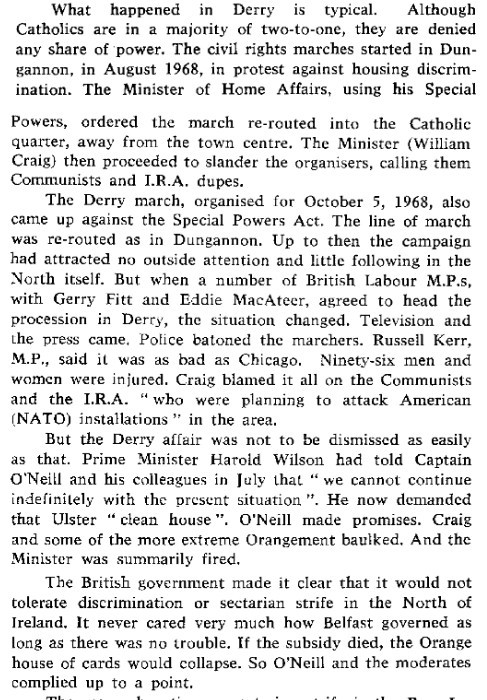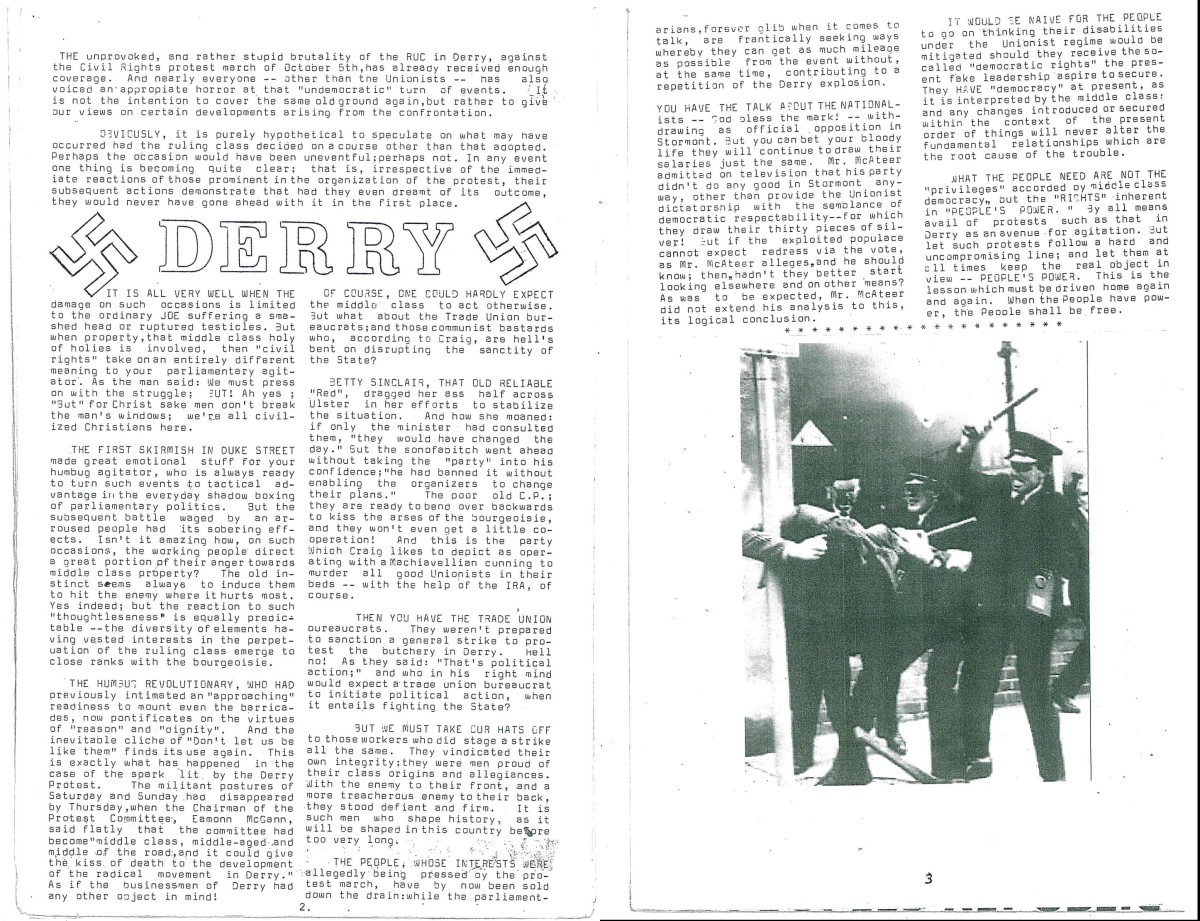A Civil Rights march in Derry was attacked by the RUC
On Saturday the 5th of October 1968, a civil rights march in Derry was stopped by the RUC at its starting point in the Waterside and marchers were attacked with batons. The RUC assault led to rioting in the city, and is often cited as the starting point of “the Troubles”.
The march was ostensibly organised by an ad hoc committee drawn from the Derry Labour Party, Young Socialists and Derry Housing Action Committee (DHAC), and supported by the Northern Ireland Civil Rights Association (NICRA), though it appears it was effectively organised by Eamonn McCann and Eamonn Melaugh. It had been proposed to march from the Waterside to the Diamond in the city centre, but the march was banned by the NI Minister of Home Affairs, William Craig, on the 3rd of October.
The organisers decided to proceed despite the ban. As they gathered, the marchers were surrounded by a large number of RUC officers, who then drew their batons and beat several marchers as they moved up Duke Street, including Gerry Fitt (then a Republican Labour Party MP), Eddie McAteer of the Nationalist Party, and other MPs. As the RUC had also blocked the other end of the street, marchers were penned in and those trying to escape the violence were met by this second RUC group who also attacked them. Water canons were also used on marchers and bystanders.
Fitt said to the press: “I was a marked man before the march started. These were stormtrooper tactics at their worst. They hit me once, but that wasn’t enough - they had to have another go, and this was the cause of the wound which had to be stitched.”
The Northern Irish state’s own report, commissioned the following year, concedes the police violence was unprovoked and unjustified, noting that “police broke ranks and used their batons indiscriminately on people in Duke Street”, “the District Inspector in charge used his blackthorn with needless violence”, “[t]here was no justification for use of the water wagons” and “[w]e regret to say that we have no doubt that both Mr. Fitt and Mr. McAteer were batoned by the police, at a time when no order to draw batons had been given and in circumstances in which the use of batons on these gentlemen was wholly without justification or excuse.” (Cameron Report, 1969).
The RUC violence was followed by two days of rioting in Derry. A large media presence at the march meant that images and footage of the police violence were widely viewed internationally, drawing attention to the civil rights issues in the North.
![Text: Twenty years ago a march for Civil Rights was banned in Derry. Those who defied the ban were batoned off the streets by the RUC. It was a spak [sic] that set the North alight against bigotry and repression. Here EAMONN McCANN, one of the original organisers of the march and now a member of the Derry SWM, looks at the role that socialists played in the fight for Civil Rights and draws the lessons for today.
[An image shows RUC with riot shields and batons drawn coming around a street corner.]](/image/4/1200/1200/images/inline/sw-mccann-5thoct1968.png)


External links:
The order banning the march from Craig
The Cameron Report
Archive footage and images from RTÉ